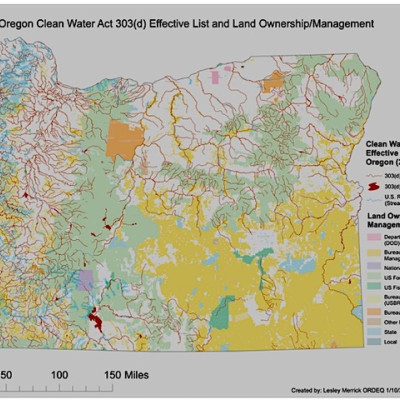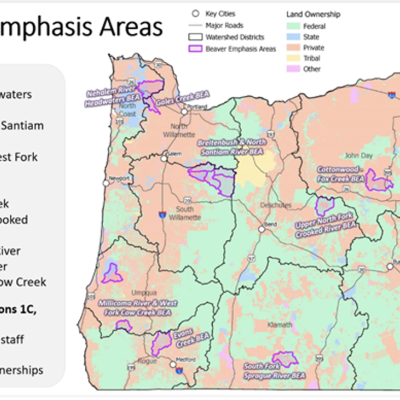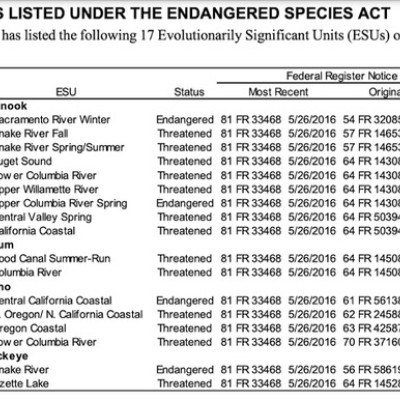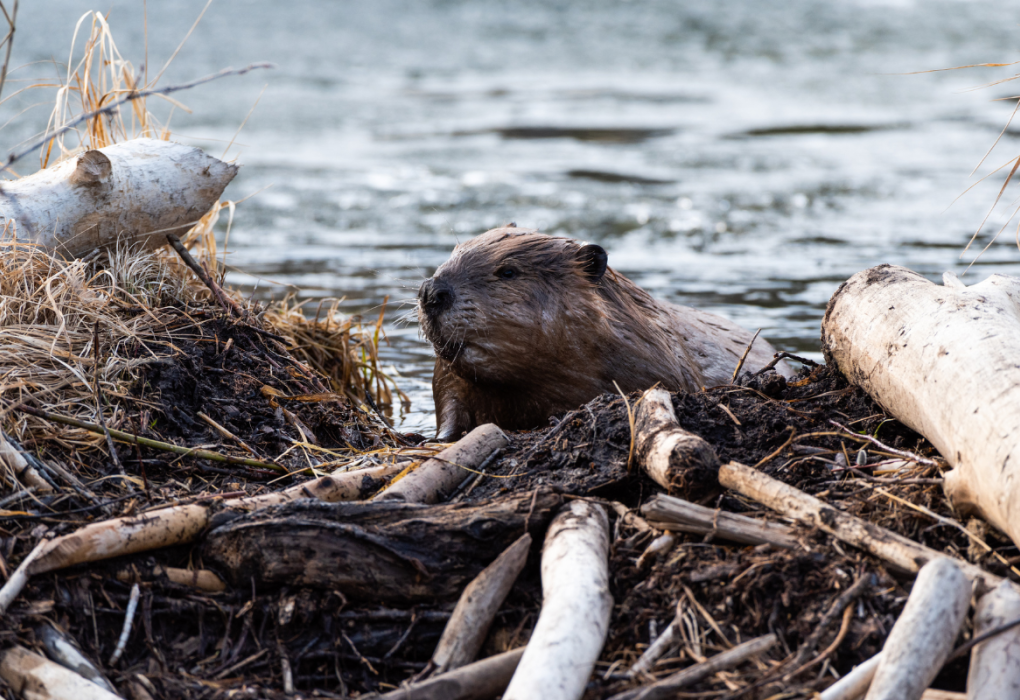Support for Beaver Conservation to Revitalize Oregon’s Waterways
Today, May 30th, 2024, Native Fish Society has joined more than forty conservation groups in urging the Oregon Fish and Wildlife Commission (ODFW) to advocate for the protection of beavers on federally managed public lands in Oregon. This request, detailed in a letter to the commission, highlights the vital role of beavers in maintaining healthy ecosystems, and encourages their necessary protection and revival by calling for a closure to beaver trapping and hunting on Oregon’s federally managed public lands, to be reviewed after ten years.
Currently, 50% of Oregon’s land is privately owned, and we applaud the sensible investments that will promote coexistence with beaver and allow for better monitoring of beaver trapping on these lands. However, considering the decline of native fish populations and the increasing impacts of climate change, we implore policymakers to enhance beaver conservation efforts on the remaining 50% of Oregon, which is public land and provides much of the state's drinking water. Implementing measures such as a 10-year moratorium on trapping would significantly advance the conservation of our lands and waters.
"The Oregon Fish and Wildlife Commission is taking laudable steps to improve the ability for private landowners to get the resources and support needed to better coexist with beaver. And it’s vital that our state’s beaver recovery efforts not stop there." said Mark Sherwood, Native Fish Society Executive Director. "Beaver are our critical ally to clean up Oregon’s many polluted streams and improve habitats for threatened native fish - all for free. To accomplish these gains the ODFW Commission needs to implement a recovery strategy for beaver on Oregon’s federally managed public lands."
Oregon has 112k miles of streams polluted to the point of impacting aquatic life - the most in the country. Previous requests made to the Commission in 2020 and 2022 to close federal lands to beaver hunting and trapping in order to help improve stream health have been ignored. Oregon cannot afford to wait any longer. In the last 25 years, Oregon has invested over $1.15 billion in habitat restoration, and beaver conservation on public lands can enhance and maintain these investments at no cost. Beavers are a keystone species and, often referred to as “Ecosystem Engineers”, naturally perform vital environmental services that improve water quality and habitat for countless other species, including wild fish. In fact, the importance of beaver conservation and restoration is noted in several recovery plans for native fish, including threatened Oregon Coastal Coho salmon.
“The health of both Coho salmon and our coastal rainforest rivers are inextricably linked with beavers. There's a reason why restoration engineers mimic what beavers do naturally: beaver dams and lodges reconnect streams to their floodplains, creating habitat complexity that cools and slows rivers, while creating habitat for juvenile salmon and small invertebrate critters at the base of the food chain,” said Jess Helsley, Director of Watershed Restoration for the Wild Salmon Center. “By helping beavers return to the landscape, we are restoring function to our coastal systems for the communities and coho that depend on them.”
“We are committed to recovery of the many ESA-listed salmon stocks, and robust beaver populations is one key piece of that effort - they will work in upper parts of the watersheds/federal lands for free. We need robust populations at the landscape scale,” said Paul Englemeyer with the Wild Bird Alliance of Oregon. “Working groups and collaborative processes are not addressing the need to quickly build up beaver populations on federal lands so they can help Oregon moderate fire impacts and address the climate and species crisis, and quite frankly, the status-quo is not working."
In the face of climate changes resulting in increasing wildfires and droughts, declining fish and wildlife habitat, and biodiversity losses, it is abundantly clear the time to make restorative changes is urgent. Beaver conservation is about more than protecting a single species, it's about safeguarding the health and resilience of entire ecosystems. By supporting the proposed regulations, we are advocating for the protection and restoration of habitats that are crucial for Oregon’s wildlife, communities, and native fish populations.
For more detailed information on the coalition letter and its recommendations, please refer to the full Press Release here.




